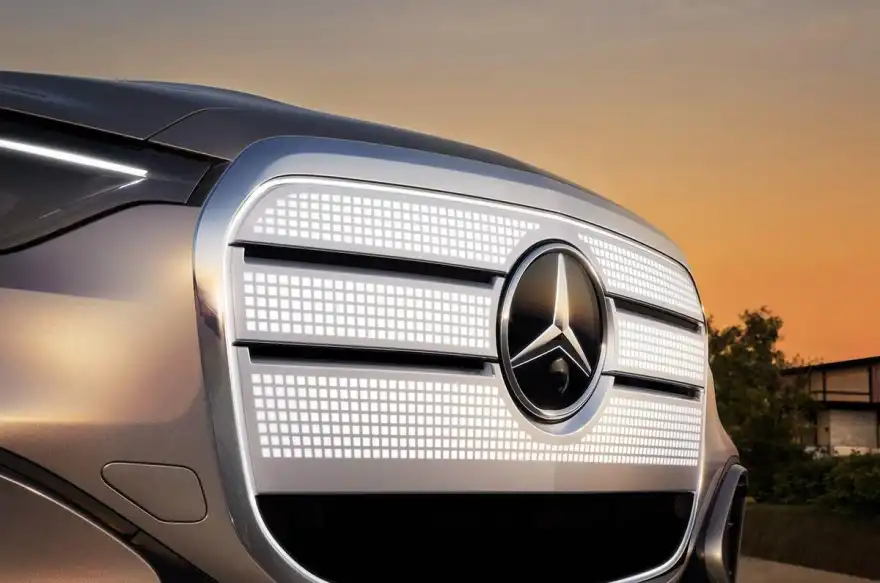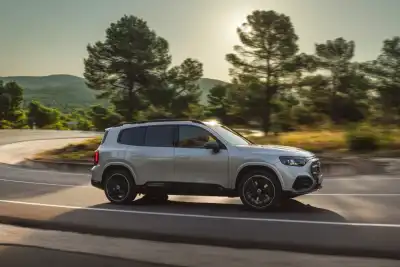
Mercedes-Benz is set to debut a striking new grille design on its next generation of electric vehicles, starting with the upcoming electric GLC SUV, which will be revealed at the Munich motor show next month.
The new design reimagines the brand’s classic radiator grille - used on nearly every combustion-engined Mercedes for over a century - by combining familiar styling cues with advanced lighting technology. It features a taller, more upright layout and a fully illuminated front panel, blending heritage with modern design.
Replacing the outgoing EQC, the electric GLC will sit alongside its petrol and diesel counterparts. It also marks the start of a wider EV rollout that moves away from Mercedes’ current ‘EQ’ naming convention.
The brand’s grille history dates back to the 1900 Mercedes 35 PS, known for its upright honeycomb structure designed for cooling. Over time, grilles became wider and lower to improve aerodynamics. However, because EVs don’t require the same airflow, early electric Mercedes models had noticeably different front ends.
Now, Mercedes is bringing back the upright grille format, but with a twist. The new version is a solid chrome panel with 942 perforated holes, backlit by more than 100 LEDs. This creates a fully customisable light signature, and the iconic Mercedes star at the centre is also illuminated, subject to local regulations.
Ola Källenius, CEO of Mercedes-Benz, said the original grille was a functional necessity rather than a design choice. But today, the aim is to preserve the brand’s identity in an increasingly competitive global market, especially with more than 100 new Chinese manufacturers entering the EV space. He described the new look as carrying forward “the unmistakeable Mercedesness.”
While the illuminated grille will appear across all upcoming Mercedes EVs, each version will have its own subtle variations. The company also plans to update its combustion-engine vehicles in the near future, with design elements likely to align more closely with the EV range as both styles converge.




